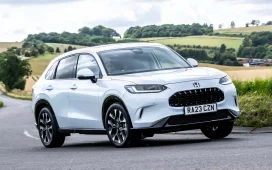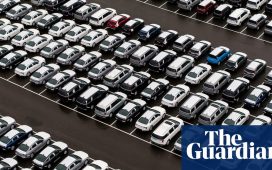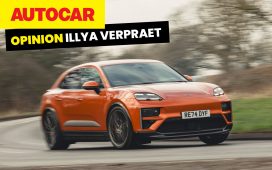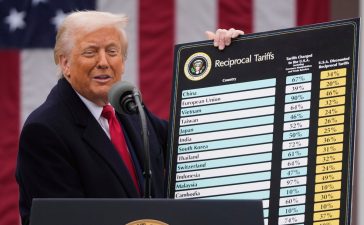Volvo will have a full suite of electric models ready for the Australian market by the time it transitions to an EV-only brand by 2026, but it’s unclear if that range will include sedans and wagons.
The bold commitment to solely offer BEVs by 2026 means Volvo’s Australian outpost will achieve that target three years ahead of the Chinese-owned Swedish brand’s 2030 global target.
It was a surprise move by Volvo Australia when it was announced last year, given the relatively low EV sales in Australia compared with other mature markets, and the lack of commitment from the federal government – until the change in government last year – to aid the take up of EVs.
However, Volvo Cars CEO and president Jim Rowan believes that there will be a range of EVs ready for Australian buyers come 2026.
“We should have most of the models by then, that I think we need,” he told Australian journalists in Melbourne recently.
Mr Rowan highlighted the coming EX90 seven-seat electric SUV that will eventually replace the XC90, as well as the future small SUV that will slot in below the XC40 – and likely to be called EX30 – that’s going to be revealed in June, as just the start.
“And we’ve already said we will produce and manufacture a brand new electric car every year for the next five years. So we say 2023 is taken care of. ‘24, ‘25 I think we’ll have a pretty decent electric range to cover most of those requirements. And … at that point in time, we’ll still be selling the PHEVs.”
Volvo Cars Australia managing director Stephen Connor said he had no concerns about the future all-electric line-up and added that it will appeal to local buyers.

“We’ve seen the future of our products and it’s looking great. We’re so excited for what’s coming through. I’m not worried at all but I know that we will have a nice, focused portfolio that will capture the market that we’re in today,” he said.
The plan means the next-gen XC60 SUV should also transition to a battery electric model, and potentially bring with it a name change to EX60. There is already an electric XC40 small SUV sold alongside the internal combustion models, as well as the swoopy new C40 EV, but expect the next-gen XC40 to be exclusively electric.
That only leaves question marks over the future of Volvo’s non-SUV models, which in Australia is limited to the S60 sedan and V60 wagon twins.
When asked if Volvo will continue to invest in the sedan and wagon segment as an all-electric brand, Mr Rowan said the company is in the process of making those decisions now.

“So that’s kind of what we’re looking at right now. The big question is, how long will the SUV be dominant? Because you’ve got to look at when the market turns as well. And generally speaking, that changes at some point, and then if you look at Northern Europe, Northern Europe has been a really strong wagon market for us, for example, whereas in China, the sedan market is really strong,” he said.
“So when we’re making those choices about what cars we’re going to bring out, you’re trying to build a global car, obviously to drive the volume and leverage the benefits of that, but you also need to hit spot market demands and if you’re known, and you have a position, let’s say with a wagon in Europe, or the sedan in China, you don’t want to let that go.
“So those are the tough design choices that we need to make and we’ve got to balance that out with the investments that we need to make as well.”











